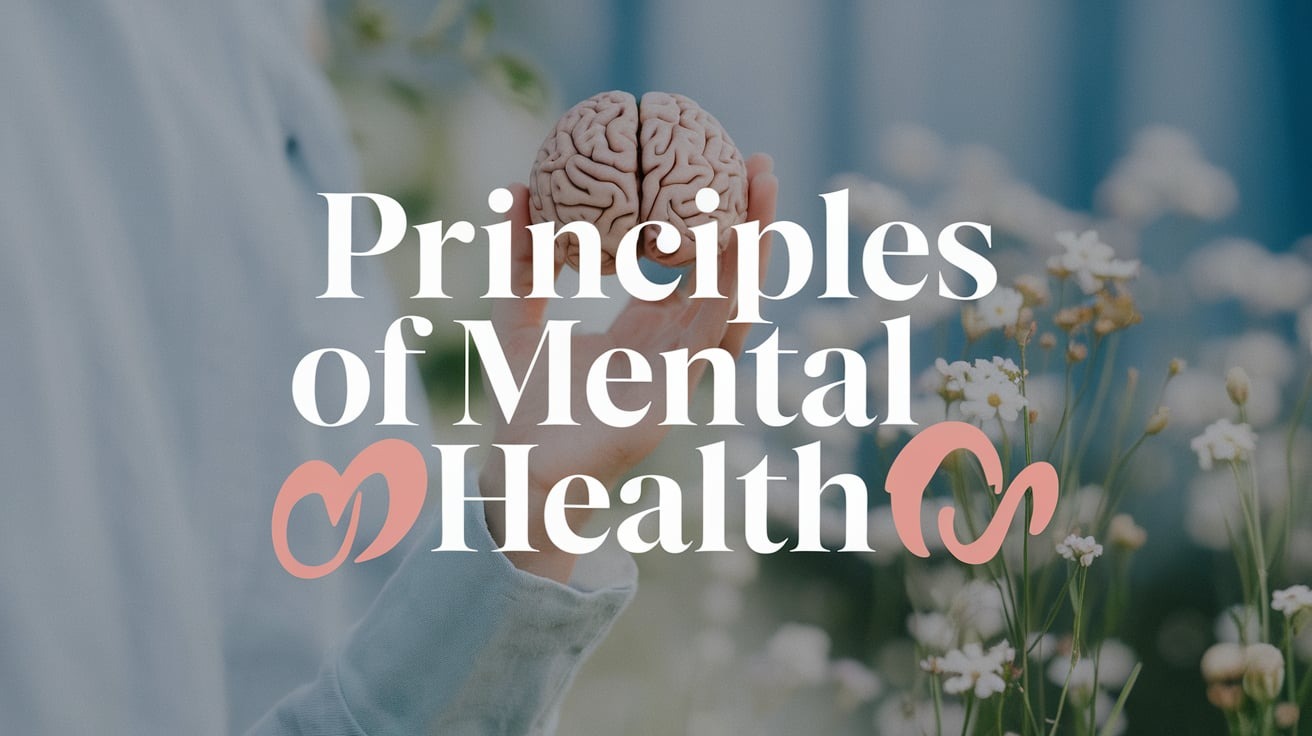Principles of Mental Health: Mental health probably just happens to be one of the most basic aspects of our life. For instance, it may influence the way we think, feel, and behave. While taking good care of our body, we should also highlight good mental health. Here are some of the major principles that could guide you through your journey towards better mental well-being.
1. Self-Awareness
Self-awareness would be the most basic foundation of a person’s mental well-being. Self-awareness is basically that conscious and rational understanding of your thoughts, emotions, and behaviors and how these affect you. A person may develop reflective awareness of their feelings and actions to show what causes and patterns may happen, thus enabling the better management of stress and appropriately effective decision-making. Well, self-awareness can also be developed through journaling or any other type of mindfulness and even some therapy – it is actually learning how your own mind is working.
2. Emotional Control
Emotional Regulation: Positive mental health has demonstrated that a person has controlled his emotions. In simple words, it just means that an individual is in control of his feelings and his reaction to it in a healthy manner. Control over emotions would cover such techniques as deep breathing, cognitive reframing, or seeking support in case of feelings becoming overwhelming. Constructive expression of emotions therefore generally reduces anxiety and fosters healthier relationships.
Healthy Relationships
Social relation affects our mental well-being. Good friends and long-term friendships will give a sense of belonging, lower loneliness, and support. Good influences, effective communication with friends and family members are essential components in strengthening relations. Active listening and empathy can intensify such connections so that whenever challenges arise, there is always a chance to call on someone for support.
4. Resilience
Resilience can be defined as the ability to spring back after being flattened by challenges. Through resilience, one learns how to deal with stress, setbacks, and change. This indicates having a growth mindset and seeing challenges as a chance to grow instead of views on possibilities that cannot be defeated. This comes through positive self-talk, problem-solving skills, and getting help when necessary.
5. Healthy Lifestyle Choices
As has been acknowledged, physical health is usually associated with mental health. Planning an exercise schedule, proper diet, and sleeping adequately are well known to affect a person’s moods and energy levels. The development of endorphins occurs through getting physical activity that enhances a person’s moods. Healthy foods feed the body to well nourish the brain for proper functions. Then, sleep provides a basis for a good foundation in regulating concentration and emotions that contributes to mental wellbeing.
6. Stress Management
That is the sense to learn how to manage stress properly. Although sometimes it would be physical or even emotional in character, chronic stress remains the common cause of most problems associated with mental health. Begin with mindfulness meditation, yoga, or some other skills in time management that would help you to deal pretty well with your stress. Finding positive ways to spend their time, whether through hobbies or creative endeavors, would be just what’s needed to distract and motivate unwinding.
7. Asking for Help When Needed
As part of self-care and management, a person should come to recognize when they must seek help. One does not have to hide or to be ashamed of speaking with a friend, counseling with a professional, or attending a support group. Knowing what you are facing and how to work your way through it is part of healing and recovery. Helping ideas include getting some valuable tools and strategies from mental health experts, who would have the tools to help people progress in their challenges and give a positive opportunity for healing.
8. Continuous Learning and Growth
Life is learning and growth. On whatever issues you may come across in your lifetime, you will be in a position to face them, enhancing your ability to cope with such issues. For instance, reading self-help books, attending workshops, or even taking on a new hobby. Growth makes people meaningful and fulfilling thus improving their mental health.
Final Thoughts
But after all, mental health does truly matter in life because it is full and satisfactory. Comprehension and practice of such principles help to build a sense of well-being. Remember that this is not something that takes care of good mental health once but a process in reflection of support and commitment; opening up to it brings you into a life where your mental health improves the balance, joy, and resiliency of living a life.
Read More : 21 Secrets of Self-Made Millionaires

